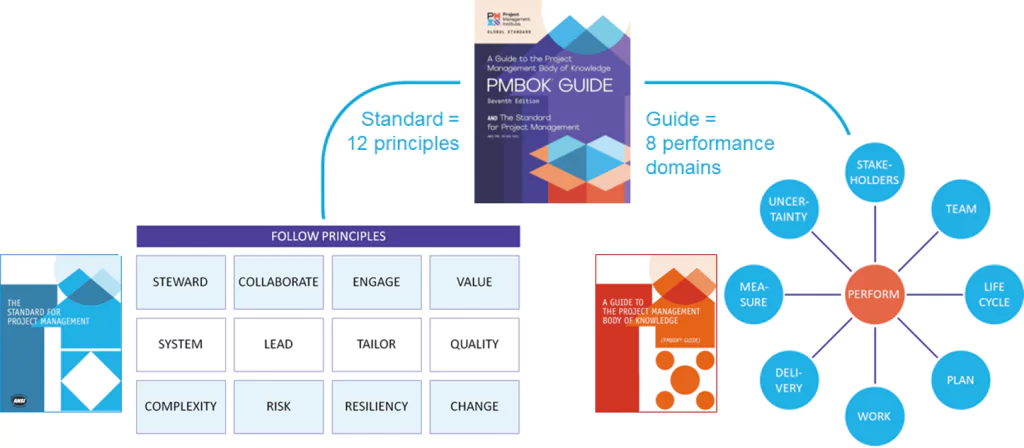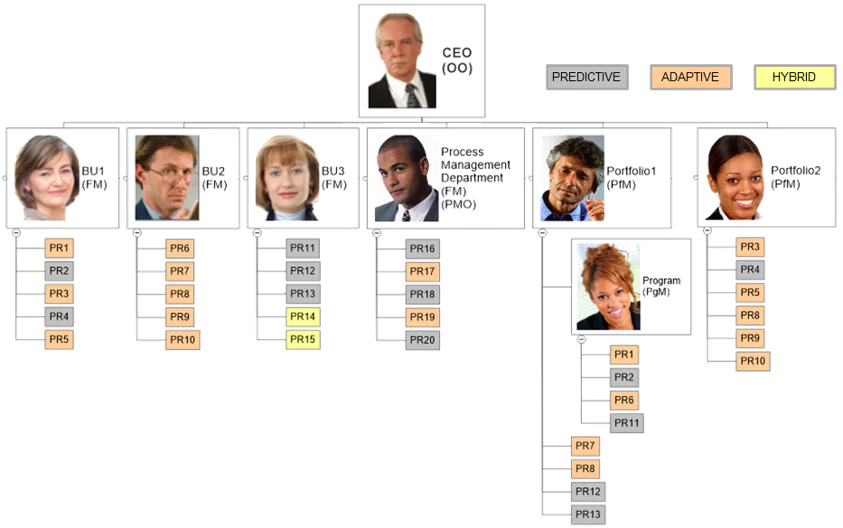- Dad, I need to fill in this form for the school. What do I write in “father’s profession”?
- You can tell I’m a “project manager”.
- Nobody will understand that. I better say you are an engineer, or a business owner?
- So “business owner”, then 🙄
This chat with my daughter made me stop and think about the profession of the project manager. Many certified project managers agree that project manager is a profession. They want to make a living as interim project managers, managing projects for clients, or running project after project in a large company, working as a member of a PMO, etc. They have an academic degree, but finally, due to twists and turns of fate, they ended up specializing in project management.
When they meet strangers and are asked “What do you do?” They answer “I’m a software engineer and I manage projects”, “I’m a telecommunication engineer and I manage projects” “I’m an architect and I manage projects”, “I’m a chemist and I work for a pharmaceutical company managing projects to develop new medicines”, etc. Despite managing projects full time, they don’t usually answer “I’m a project manager in IT, in telecommunication, in construction, in drug development”. Notice they were asked about their profession, not the academic degree.
Over 50 years ago, experts agreed a new discipline was needed to turn ideas into reality. Operations management was good to manage the day-to-day business, not to manage the creation of new products, services or results, or any kind of organizational change.
Experts agreed a new set of tools, techniques and processes were needed in order to finish projects on time, on cost, delivering the value and meeting the business goals, and then to be transitioned to operations. Regardless the industry, all projects are expected to be initiated, planned, executed, controlled, and closed. Project professionals share best practices to manage requirements, scope, time, cost, quality, resources, communications, risks, procurement, and stakeholders. Little by little, a discipline named project management began to differentiate and specialize.
Projects are considered as Cost Centers
I can imagine Tim Cook is quite interested when he is reported on the innovations in the new iPhone project. Apple reached a leading position precisely thanks to 6 emblematic projects:
However, Mr. Cook is well aware that Apple is ahead of the market not because of its projects, but its operations (manufacturing, distribution, selling, etc.). When he thinks of the extraordinarily expensive projects in Apple, he wants them finished and transitioned to operations to start financial returns. In the accounting of many companies, projects are treated as cost centers. Unfortunately, projects tend to be a concern for managers because they don’t generate positive cash flows: they only produce costs, purchases, expenses, etc.
Anyone could achieve the project goals with an unlimited supply of resources and time. Here’s where professional project managers are needed. They are supposed to know how to optimize project management to meet the project goals.
Project managers like farewells: We are «closers»
Projects should not last forever. Project manager will never be recognized as a profession if project management is mixed with operations management. Good project professionals start projects with the end in mind. The temporary aspect of a project is essential in professional management. Projects are closed after transitioning the result, service, or product to operations. If the project is long-lasting, it can be divided into phases, each of them managed as a project from initiation to closing. Incremental value should be delivered at the end of each phase. Phasing and continue value delivery is a core activity when managing agile projects.
A day in the life of a Project Manager
A project manager is more than just an efficient person who tracks the tasks of the project team members:
Controlling tasks is needed in any project, but it is not enough. Projects don’t usually fail for technical reasons. Projects usually fail due to poor management of risks, requirements, quality, procurement, communications, etc. Any project professional should know how to manage a project to finish on time, and on budget, how to divide the project in manageable packages, what tools help the team keep focused on what is important, how to manage project status reviews, etc.
Nowadays, professional project managers know how to manage agile or predictive projects, and they focus on value delivery besides the triple constraint. Projects include more and more stakeholders. Project complexity is so high that centralized management is not efficient. Value projects are managed under a network of people actively collaborating using different roles. Command and control leadership style and rigid vertical organizational structures are not efficient. Excellent power skills are required to engage many stakeholders, horizontal self-organized teams, servant situational adapted leadership.
The 7th edition of the PMBOK® Guide, by PMI®, makes quite clear some points:

- Projects are devices to turn ideas into reality.
- Project professionals should behave based on 12 principles.
- Project professionals should perform right on 8 performance domains.
- Project professionals can be assessed by project outcomes, not process outputs. People appraising performance would not be project professionals, necessarily.
Organizations are getting “projectified”
When we say that organizations are getting projectified, what we really want to say is that managers are starting to pay more attention to projects than operations. They know they cannot beat the competition just by improving operations management. Global access to knowledge and experts has homogenized practices in manufacturing, marketing, sales, logistics, human resources, accounting, finance, legal, etc.

Companies can beat their competitors when they launch new products or services, enhance the existing ones, open new markets, execute the strategic plan, redesign projects, with merges and acquisitions, etc. All these are projects that can be managed good or bad. Not being a guarantee for success, assigning a project professional seems always a good advice. At least, managers will have someone accountant. Professional project managers should also be used in startups.
Do you want to be a Project Manager?
I recommend watching this inspiring video by the great Rita Mulcahy on the project management profession.
Don’t miss out the final part with the vow to be a project manager:
I will help pull everyone’s needs together and plan this project to see if project objectives can be met. I will adjust stakeholder expectations and the project plan, so they are realistic and achievable. Then, I will ensure a common understanding, take corrective actions, and keep everyone focused to keep the project on track, or I will just fire myself!
Will the Project Manager job end up being a profession recognized by society? If we tell people that we are project managers, will they understand this is a profession like a cook, an accountant, a lawyer, a dentist, etc.?
PMPeople is the tool for the project economy. It is aimed to unify professional project management by these differential points:
- Designed by and for professional project managers, following professional project management standards.
- Online productivity –less meetings, less documents, less workflows– through distributed collaboration among 12 specialized roles: Organization Owner, 6 roles on demand management and 5 roles on supply management.
- Freemium product –unlimited time, unlimited users– usable via web and mobile application.
Start using PMPeople for free, for unlimited time and for any number of users. In premium organizations, only managers have a cost. Several roles –stakeholders, team members, sponsors and resource managers– are always free. You can increase or decrease your premium seats according to the organization actual needs. Premium organizations have access to our interactive support through Slack. Our servers are located in EU. This software can also be hosted on customer premises.
Jose Barato
Related posts
Categories
- Business (16)
- Demand Management Roles (14)
- Frequently Asked Questions (7)
- Guide (26)
- People (23)
- Assignments (2)
- Feedback (2)
- Project Team (3)
- Tracking Time And Expenses (2)
- Process (9)
- Closing (2)
- Executing And Controlling (2)
- Planning (1)
- Project Management (67)
- Management Frameworks (18)
- Organization Owner (OO) (3)
- Project Economy (54)
- Tools (19)
- Supply Management Roles (5)
- Training (6)
- Uncategorized (1)





